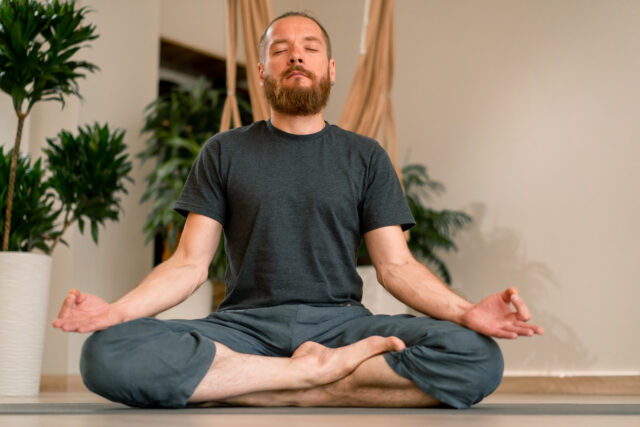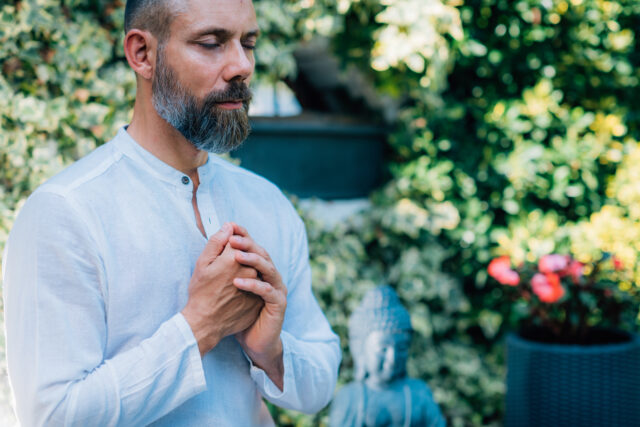Everyone gets caught up in materialism now and then.
 Source: Unsplash
Source: Unsplash
We live in a materialistic society, and no one is immune to the effects of that. However, if you want to live in a more minimalistic way and reduce the hold your Primark and ASOS hauls have over your life, here’s how to do it.
1. You can focus on experiences, not things.

Instead of splurging on the latest gadget or fashion trend, invest in experiences that create lasting memories. Whether it’s a weekend getaway, a concert, or even just a picnic in the park, these experiences enrich your life in ways that material possessions simply cannot. You’ll find yourself cherishing the moments shared with loved ones and the stories you create together.
2. You can practise gratitude for what you already have.

Take a moment each day to appreciate the things you already own. Whether it’s a cosy home, a supportive group of friends, or simply the ability to enjoy a good meal, focusing on gratitude can shift your perspective and make you realise that you already have so much to be thankful for. This can help curb the desire for more and create a sense of contentment with what you have.
3. You can declutter your living space.
 Source: Unsplash
Source: Unsplash A cluttered home can lead to a cluttered mind. Take some time to go through your belongings and get rid of anything you don’t use, need, or love. Donating or selling unwanted items can free up physical space and create a sense of lightness and liberation. You might be surprised at how much calmer and more focused you feel in a tidy environment.
4. You can set financial goals that aren’t focused on material possessions.
 Source: Unsplash
Source: Unsplash Instead of saving up for a luxury car or a designer handbag, set financial goals that align with your values and aspirations. This could be saving for a down payment on a house, paying off debt, or even creating a fund for charitable donations. When your financial goals are focused on things that truly matter, it becomes easier to resist impulse buys and prioritise long-term happiness over short-term gratification.
5. You can spend time in nature.

Reconnecting with nature can be a powerful antidote to materialism. Spending time outdoors, whether it’s hiking, gardening, or simply taking a walk in the park, can help you appreciate the simple beauty of the world around you. It can also remind you that true happiness often lies in experiences and connections, not in accumulating possessions.
6. You can limit your exposure to advertising.

Advertising is designed to make you want things you don’t need. By being mindful of the messages you’re exposed to, you can reduce the temptation to buy into consumerism. Consider unsubscribing from marketing emails, limiting your time on social media, or using ad-blocking software. You’ll be surprised at how much calmer and less tempted you feel when you’re not constantly bombarded with ads.
7. You can challenge your beliefs about happiness and success.

Society often equates happiness and success with material wealth. Take some time to reflect on your own beliefs and values. What truly brings you joy and fulfilment? Is it the latest tech gadget or the feeling of accomplishment after completing a challenging project? By redefining your own measures of success, you can break free from the societal pressure to accumulate more and find happiness in simpler things.
8. You can surround yourself with people who share your values.

The company you keep can have a big impact on your mindset and behaviour. If you’re surrounded by people who constantly flaunt their latest purchases or prioritise material possessions, it can be difficult to resist the urge to do the same. Look for friends and communities who share your values and focus on experiences, personal growth, and making a positive impact on the world. You’ll find it much easier to embrace a less materialistic lifestyle when you’re surrounded by like-minded people.
9. You can learn to repair and reuse items instead of replacing them.
 Source: Unsplash
Source: Unsplash Our throwaway culture encourages us to replace broken or outdated items instead of fixing them. However, learning to repair things yourself or finding a skilled craftsperson can save you money and reduce waste and give you a sense of accomplishment. Repurposing old items into something new can also be a fun and creative way to reduce consumption.
10. You can give back to your community through volunteering or charitable donations.

Shifting your focus from acquiring things to helping others can be a powerful way to combat materialism. Volunteering your time or donating to causes you care about can give you a sense of purpose and fulfilment that goes far beyond material possessions. You’ll realise that making a positive impact on the world is far more rewarding than accumulating more stuff.
11. You can practise mindful consumption.

Before making any purchase, pause and ask yourself: “Do I really need this? Will it add value to my life? Is there a more sustainable or ethical alternative?” By being more mindful of your consumption habits, you can make more conscious choices and avoid impulse buys that you’ll later regret. This can help you save money, reduce waste, and feel more in control of your spending.
12. You can celebrate non-material milestones.

Instead of focusing on material achievements like buying a new car or getting a promotion, celebrate non-material milestones like completing a challenging hike, learning a new skill, or strengthening a relationship. These achievements might not come with a price tag, but they can bring a sense of accomplishment and personal growth that lasts far longer than any material possession.
13. You can create a budget and stick to it.
 Source: Unsplash
Source: Unsplash One of the most effective ways to curb materialistic tendencies is to create a budget and track your spending. This can help you identify areas where you might be overspending and make more conscious choices about how you allocate your resources. By sticking to a budget, you can avoid impulse purchases and ensure that your money is being used in a way that aligns with your values and goals.
14. You can embrace minimalism as a lifestyle choice.

Minimalism isn’t just about decluttering your home; it’s a mindset shift that prioritises experiences, relationships, and personal growth over material possessions. By adopting a minimalist lifestyle, you can simplify your life, reduce stress, and focus on what truly matters. This can involve decluttering your home, owning fewer possessions, and making more intentional choices about how you spend your time and money.





